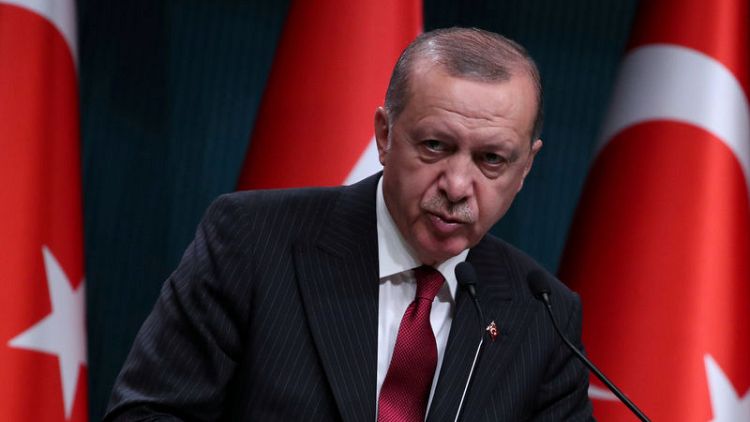BISHKEK (Reuters) - Turkish President Tayyip Erdogan urged Kyrgyzstan on Saturday to crack down on groups linked to the Fethullah Gulen movement which Ankara blames for a failed 2016 coup, something Bishkek has so far refused to do.
A network of schools and colleges sponsored by the U.S.-based cleric and his supporters has existed for decades across ex-Soviet Central Asia.
After the 2016 coup attempt, Ankara asked governments in the region to shut down the network but some were reluctant. Almazbek Atambayev, Kyrgyz president at the time, flatly refused to close the schools and simply had the educational network renamed.
Erdogan, on a visit to the mostly Muslim nation of six million, raised the matter again at a meeting with the new president, Sooranbai Zheenbekov, saying the Gulen network presented a security threat.
"We don't want our brotherly people to encounter such problems," Erdogan said at a joint briefing with Zheenbekov.
"They (Gulen supporters) may infiltrate the interior ministry, military structures, such a coup may happen in Kyrgyzstan as well."
Zheenbekov, who came to power last year, stopped short of promising to comply, saying the school network was now under the government's control.
Kyrgyzstan's neighbour, Kazakhstan, has also refused to shut down Gulen-sponsored schools, and has also had them renamed.
(Reporting by Olga Dzyubenko; Writing by Olzhas Auyezov; Editing by Andrew Roche)
